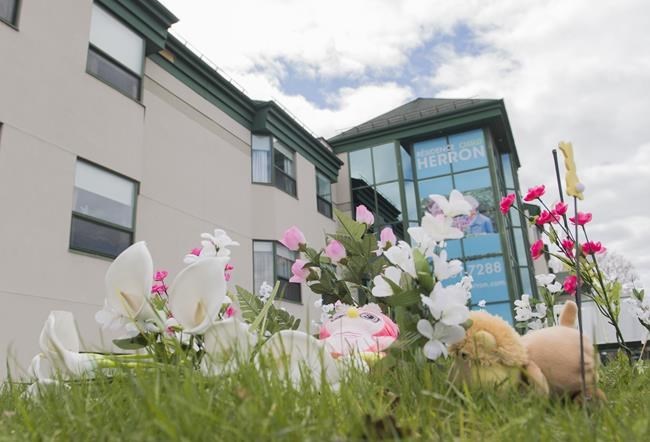MONTREAL — A nurse told a Quebec coroner's inquest on Monday that a Montreal-area long-term care home where 47 people died during the first wave of COVID-19 was understaffed and lacked proper equipment even before the pandemic hit.
Véronique Bossé, who worked as director of care at Résidence Herron from September 2019 to January 2020, said on Monday there were not enough washcloths and mattress protectors for all the residents when she began work.
"Back then, there was already a lack of staff," Bossé told coroner Géhane Kamel. "The ratio of health-care workers to patients was inadequate."
Bossé also said the residence was dealing with frequent staff turnover, which she said was a result of low wages. She said patient attendants at the residence were earning $12 an hour when she started there in 2019.
"It was underpaid for the tasks they had to do," she said, adding that whenever she would bring concerns about staff shortages to the administration, she would be told it was a question of money.
Bossé questioned the push for profits in private residences such as Herron. "Why does it have to be profitable to the detriment of the quality and the care we give to the elderly?" she asked.
The union representing patient attendants in Quebec long-term care homes went on strike at several institutions at the time, demanding $15 an hour. Bossé said a contract providing $14 per hour was signed at Résidence Herron shortly after she began working there.
Bossé's own mother, who had Alzheimer's disease, was a resident at Résidence Herron and died during the first wave of COVID-19. She said that even before the pandemic, her mother had been hospitalized due to dehydration.
Bossé, who was no longer working at Herron at the time, said that when she called the residence on March 28, 2020, to ask about her mother, she was told to not worry, there were no COVID-19 cases on her mother's floor.
Six days later, Bossé continued, she was told her mother had COVID-19 even though she hadn't been tested for it. "The staff had assumed she had it since doctors were instructed not to enter the rooms," Bossé said. She then requested a drip for her mother as part of end-of-life care.
Bossé recalled that the next morning, April 4, she called a nurse at Herron to check on her mother. Bossé said the nurse didn't know who she was talking about. She said she was told, "No, I am in charge of important cases" before the person hung up the phone.
Bossé's mother died on April 7.
"In my mind, she died of thirst, of hunger. Also, her oxygen tank was empty," she said. "She ran out of oxygen."
The coroner's mandate is to investigate 53 deaths at six long-term care homes and one seniors residence.
This report by The Canadian Press was first published on Sept. 13, 2021.
Lia Lévesque, The Canadian Press




